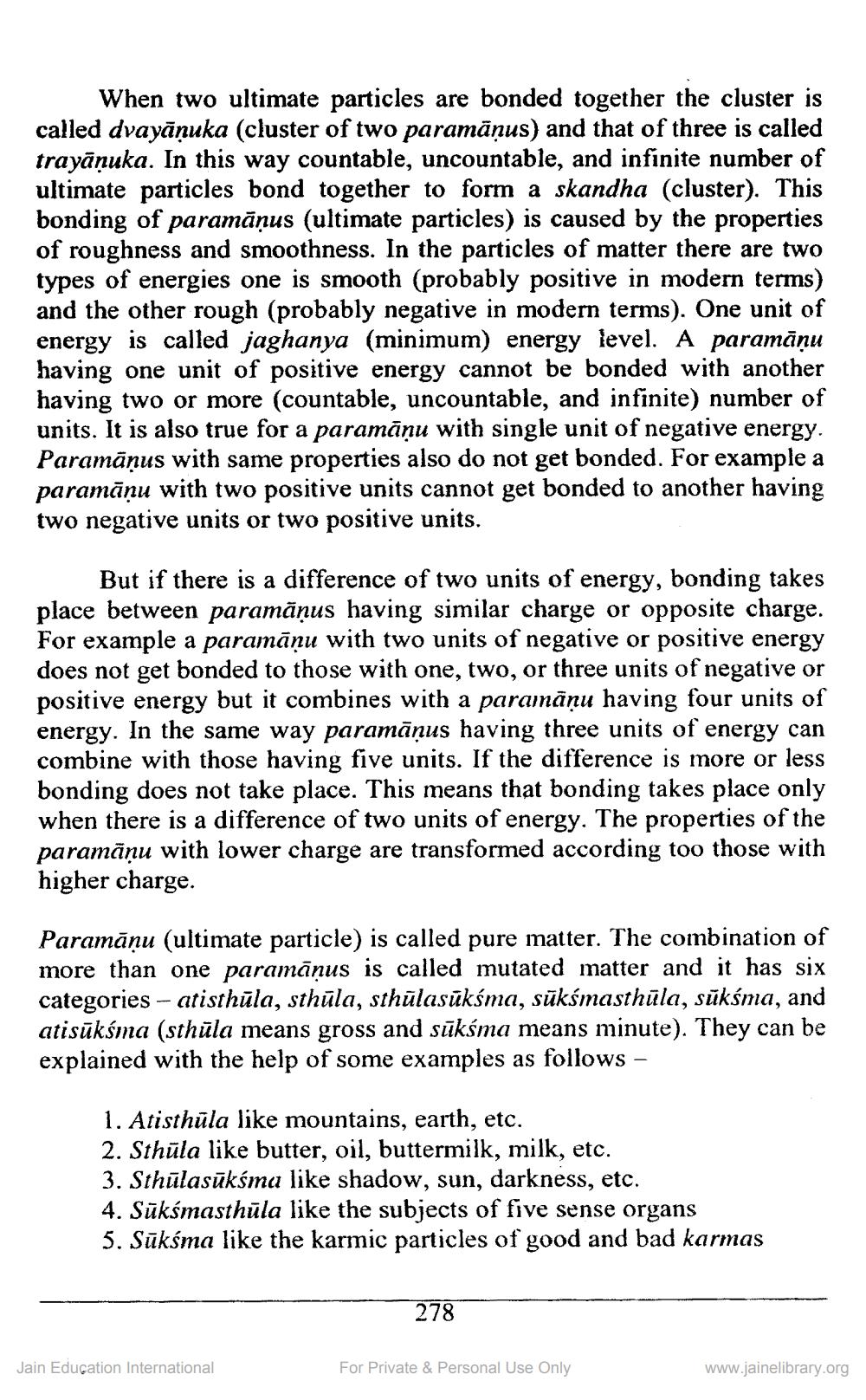________________
When two ultimate particles are bonded together the cluster is called dvayāņuka (cluster of two paramāņus) and that of three is called trayāņuka. In this way countable, uncountable, and infinite number of ultimate particles bond together to form a skandha (cluster). This bonding of paramāņus (ultimate particles) is caused by the properties of roughness and smoothness. In the particles of matter there are two types of energies one is smooth (probably positive in modern terms) and the other rough (probably negative in modern terms). One unit of energy is called jaghanya (minimum) energy level. A paramāņu having one unit of positive energy cannot be bonded with another having two or more (countable, uncountable, and infinite) number of units. It is also true for a paramāņu with single unit of negative energy. Paramāņus with same properties also do not get bonded. For example a paramāņu with two positive units cannot get bonded to another having two negative units or two positive units
But if there is a difference of two units of energy, bonding takes place between paramāņus having similar charge or opposite charge. For example a paramāņu with two units of negative or positive energy does not get bonded to those with one, two, or three units of negative or positive energy but it combines with a paramāņu having four units of energy. In the same way paramāņus having three units of energy can combine with those having five units. If the difference is more or less bonding does not take place. This means that bonding takes place only when there is a difference of two units of energy. The properties of the paramāņu with lower charge are transformed according too those with higher charge.
Paramāņu (ultimate particle) is called pure matter. The combination of more than one paramāņus is called mutated matter and it has six categories - atisthūla, sthüla, sthūlasūkśma, sükśmasthūla, sūksma, and atisūkśma (sthūla means gross and sūksma means minute). They can be explained with the help of some examples as follows –
1. Atisthūla like mountains, earth, etc. 2. Sthūla like butter, oil, buttermilk, milk, etc. 3. Sthūlasūkśma like shadow, sun, darkness, etc. 4. Sūkśmasthüla like the subjects of five sense organs 5. Sūkśma like the karmic particles of good and bad karmas
278
Jain Education International
For Private & Personal Use Only
www.jainelibrary.org




